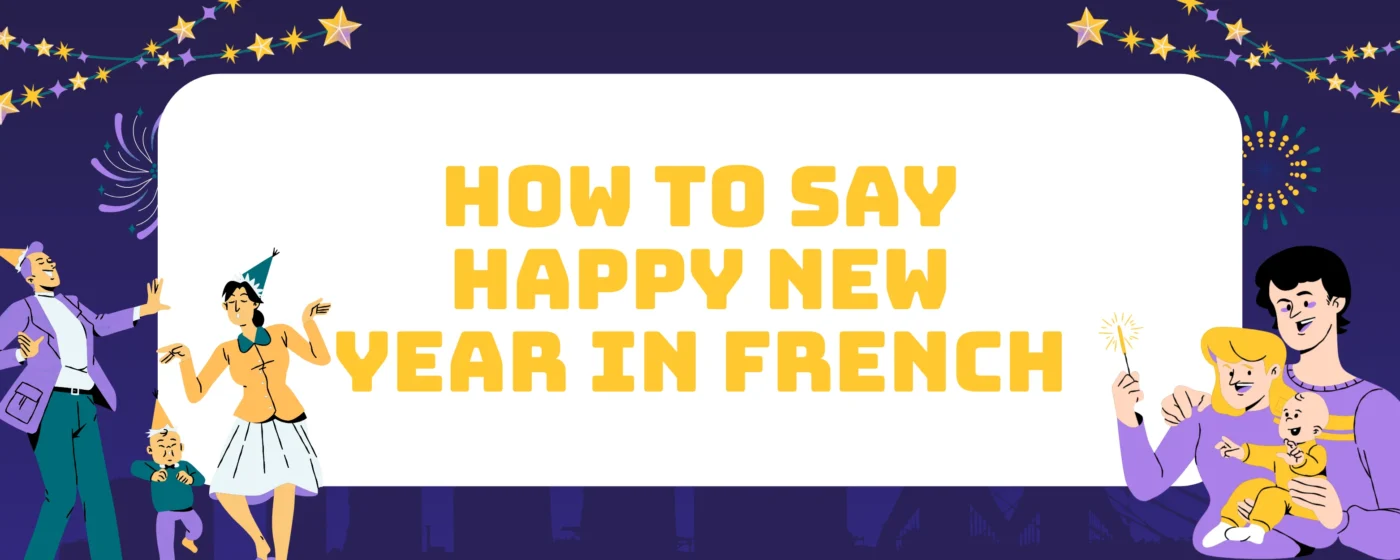In French, “oui” is far more nuanced! It can range from a wholehearted “absolutely!” to a hesitant “well, maybe…” Don’t know how to do this? Worry not! This article will guide you through the delightful maze of French “Yes” helping you navigate conversations with the ease and confidence of a true Francophone.
Key Takeaways
- Learn the different ways to say “Yes” in the French language, and also its different common ways words saying ‘Yes’ Casually in French, etc
- Learn the most common ways to say “Yes” in the French language with translations for your better understanding, such as Oui = Yes, Ouais = Yeah, etc.
- Know the double up “Ys” word for excitement with its translation for better explanation, such as Oui, oui! means strong yes, like “Oui, oui, le Louvre!”
- Learn the word with translations Hesitant yes, such as Oui, mais… (yes, but), Oui, je suppose (yeah, I guess), or Oui, peut-être (maybe).
- Teach the word “Yes’ in French and its translations in different ways, like Oui, absolument! or Oui, bien sûr! (yes, of course!) for full agreement.
Most Common Ways to Say Yes in French
Oui
Usage: This is the standard and most formal way to say “yes” in French. It’s appropriate for all formal situations, such as meetings, interviews, presentations, conversations with professors, formal discussions, interacting with elders or people in positions of authority.
Tone: Generally “oui” has a neutral, formal tone.
Example: “Oui, je comprends.” (Yes, I understand.)
“Oui, j’aimerais bien aller au musée.” (Yes, I would like to go to the museum.)
Ouais
Usage: This is a more casual and informal way to say “yes”. It corresponds to “yeah” in English. It’s suitable for conversations with friends and family, parties, casual gatherings, as well as everyday interactions.
Tone: “Ouais” is often used in a more relaxed and casual tone, as compared to the more formal “oui”.
Example: Ouais, ça va.” (Yeah, I’m fine.)
Ouais, j’ai vu ce film.” (Yeah, I saw that movie.)
Expand your French vocabulary by exploring different ways to say beautiful in French in this simple and engaging blog.
Saying ‘Yes’ Casually in French
When chatting with friends and family, French speakers often use “ouais” instead of “oui” to say “yes”. It’s like saying “yeah/ yep” in English – more casual and relaxed than the super formal “oui”.
Examples of Oui and Ouais in Positive Situations
- Voulez-vous du café? – Oui, merci. (Would you like some coffee? – Yes, thank you.)
- Est-ce que tu es d’accord? – Oui, je suis d’accord. (Do you agree? – Yes, I agree.)
- On sort ce soir? – Ouais, ça marche! (Are we going out tonight? – Yeah, sure!)
- On commande une pizza? – Ouais, bonne idée! (Shall we order a pizza? – Yeah, good idea!)
Examples of Oui and Ouais in Negative Situations
- Tu peux m’aider? – Oui, mais je suis occupé. (Can you help me? – Yes, but I’m busy.)
- Tu viens à la fête? – Oui, mais je ne sais pas si je pourrai rester longtemps. (Are you coming to the party? – Yes, but I don’t know if I can stay long.)
- Tu veux aller au cinéma? – Ouais, mais j’ai déjà vu ce film. (Do you want to go to the cinema? – Yeah, but I’ve already seen that movie.)
- On va manger dehors? – Ouais, mais je n’ai pas beaucoup d’argent. (Shall we eat out? – Yeah, but I don’t have much money.)
Furthermore, here is an example conversation for you to better understand the usage of “yes” in casual French conversations.
Ankita: Salut, ça va? (Hi, how are you?)
Michelle: Ouais, ça va. (Yeah, I’m doing great.)
Ankita: Tu viens à la fête ce week-end? (Are you coming to the party this weekend?)
Michelle: Oui, j’ai hâte! (Yes, I’m looking forward to it!)
Ankita: Cool! On va s’amuser. (Cool! We’re going to have fun.)
Michelle: Ouais, ça va être génial! (Yeah, it’s going to be awesome!)
Yes to Agree in French
“Oui” is a crucial stepping stone of French agreement, but its power extends far beyond a simple affirmation. The way you deliver your “yes” can convey a wide range of emotions. Let’s take a look at some examples to better understand this.
Affirming Situations
- When you’re exuberantly enthusiastic, a firm and confident “Oui!” can convey excitement and eagerness.
- A softer, more contained “Oui” can be used to express polite agreement or acceptance. For instance, if your host offers you a second helping of dessert, a gentle “Oui, merci” is both gracious and appropriate to the situation.
Agreeing with Questions
- A “Oui.” alone is a perfectly acceptable response to a simple yes/no question like “Est-ce que tu as faim?” (Are you hungry?).
- You can also expand on your “oui” answers by adding phrases like “Oui, absolument!” (Yes, absolutely!) or “Oui, bien sûr!” (Yes, of course!).
Here is another conversation example for you to gain a deeper insight into the concept.
- Camille: On va au cinéma ce soir? Il y a un nouveau film de Tarantino. (Shall we go to the cinema tonight? There’s a new Tarantino film.)
- Othman: Oui! J’adore Tarantino. (Yes! I love Tarantino.)
To be polite in French conversations, it’s essential to know how to say please—explore the nuances in How to Say “Please” in French.
Double Yes in French
Agree with something more than a normal “oui” can express? Well, we’ve got you! You can simply double the “oui” to express your enthusiasm or excitement. This repetition of “oui” as in “Oui, oui” or “Oui, oui, bien sûr” is a common way to express stronger affirmation, enthusiasm or even confidence in French!
For example: Imagine you’re someone who loves to appreciate art. You’re planning a trip with some friends and someone suggests visiting the Louvre Museum in Paris.
“Oui, oui, le Louvre! C’est une excellente idée!” (Yes, yes, the Louvre! It’s an excellent idea!)
This repeated “oui oui” emphasizes sheer enthusiasm for the suggestion and conveys your excitement about visiting the museum!
We hope that this example cleared the use of double “oui” to y’all.
Now, let’s move on.
Stop Guessing, Start Speaking!
With our expert tutors, you’ll master the words you need to speak French confidently!
Unconvinced Yes in French
Haven’t we all been in situations where we’ve said yes to something hesitantly? Well, apart from the enthusiastic and polite use of “oui”, it can also be used to express a hesitant agreement. Confused how that works? Let’s take a look at some examples.
- “Oui” with a counterpoint/ condition
Oui, mais je dois d’abord finir mes devoirs. (Yes, but I have to finish my homework first.)
- A partially convinced “Oui”
Oui, je suppose que nous pouvons aller au restaurant. (Yes, I suppose we can go to the restaurant.)
- A tentative “Oui” (with a potential for change of plans!)
Oui, peut-être que je viendrai, mais je ne suis pas sûr. (Yes, maybe I will come, but I’m not sure.)
Conclusion
So there you have it – “Yes” in French is a whole world of possibilities! From enthusiastic agreement to polite hesitation, mastering these subtleties will make your French conversations feel more natural and authentic. Want to explore more of the French language? You can visit La Forêt French Class and explore different batches for French language learning, or you can check out our French Language Learning Blog for tips and learning resources to enhance your knowledge!
Frequently Asked Questions
1. What is slang for “oui”?
Ans: “Ouais” is the most common and casual slang for “oui”. It’s similar to “yeah” in English.
2. Does “si” mean yes?
Ans: Yes, but only in response to a negative question.
For example: Tu n’as pas faim? (Aren’t you hungry?) – Si.(Yes, I am.)





